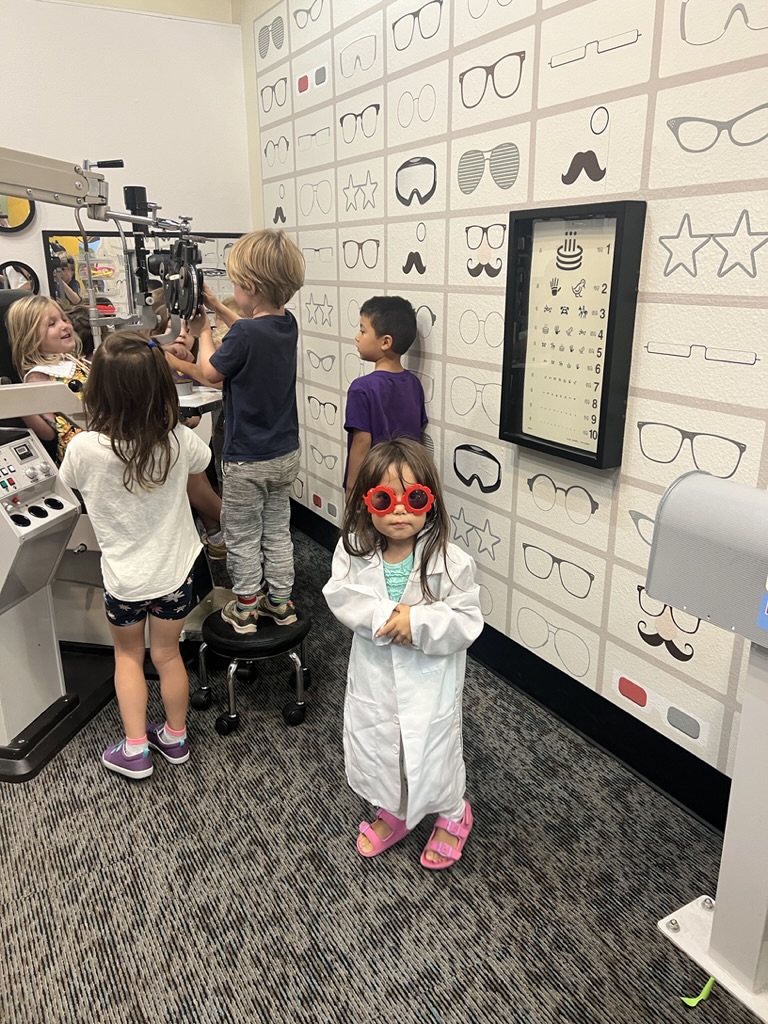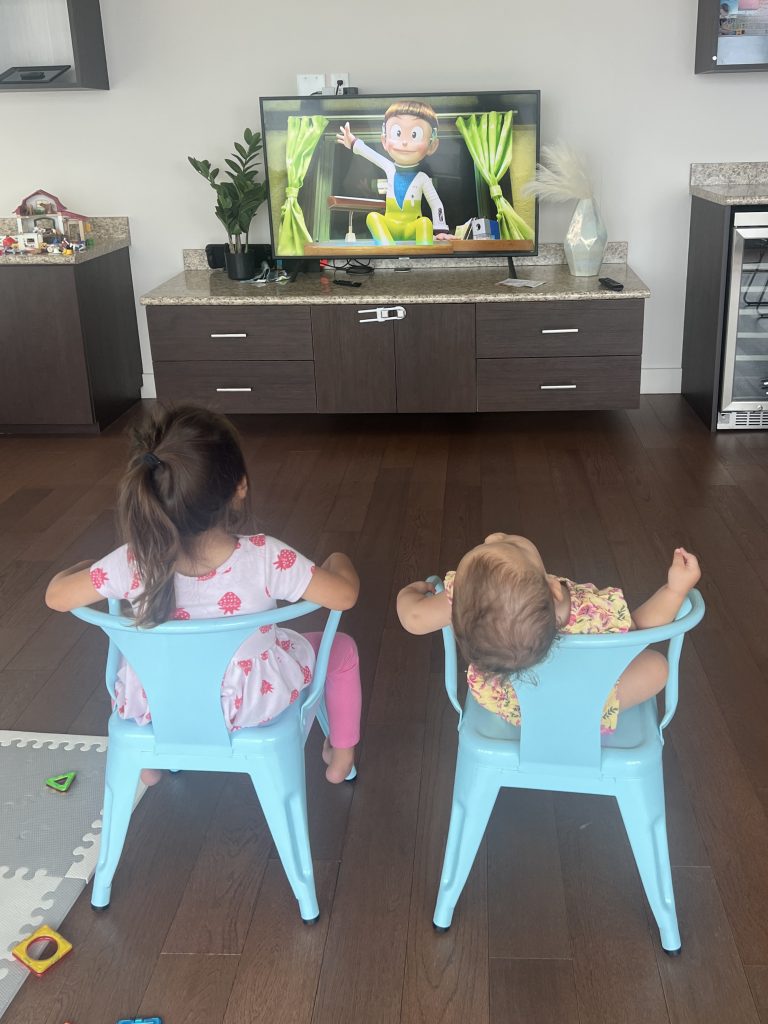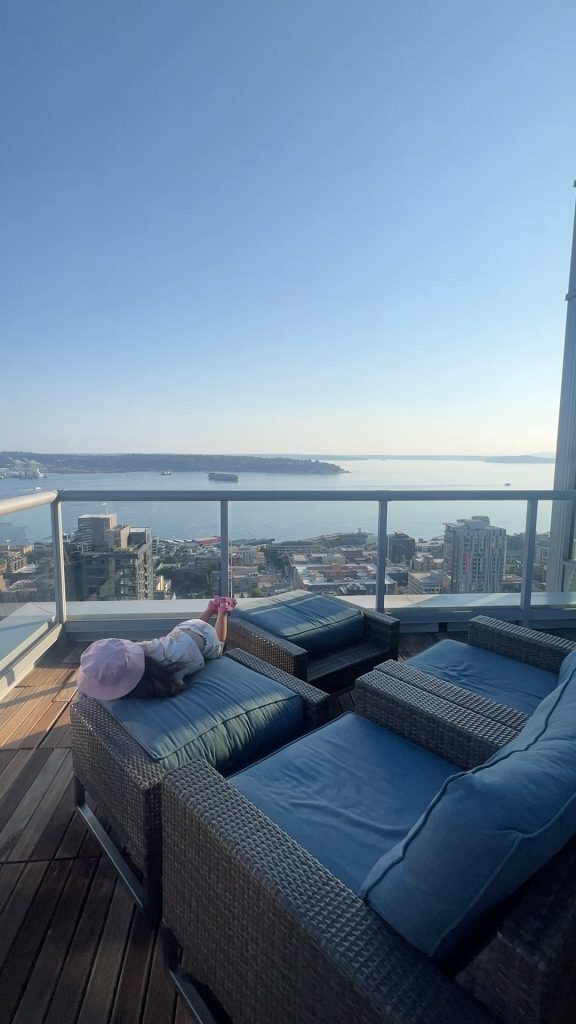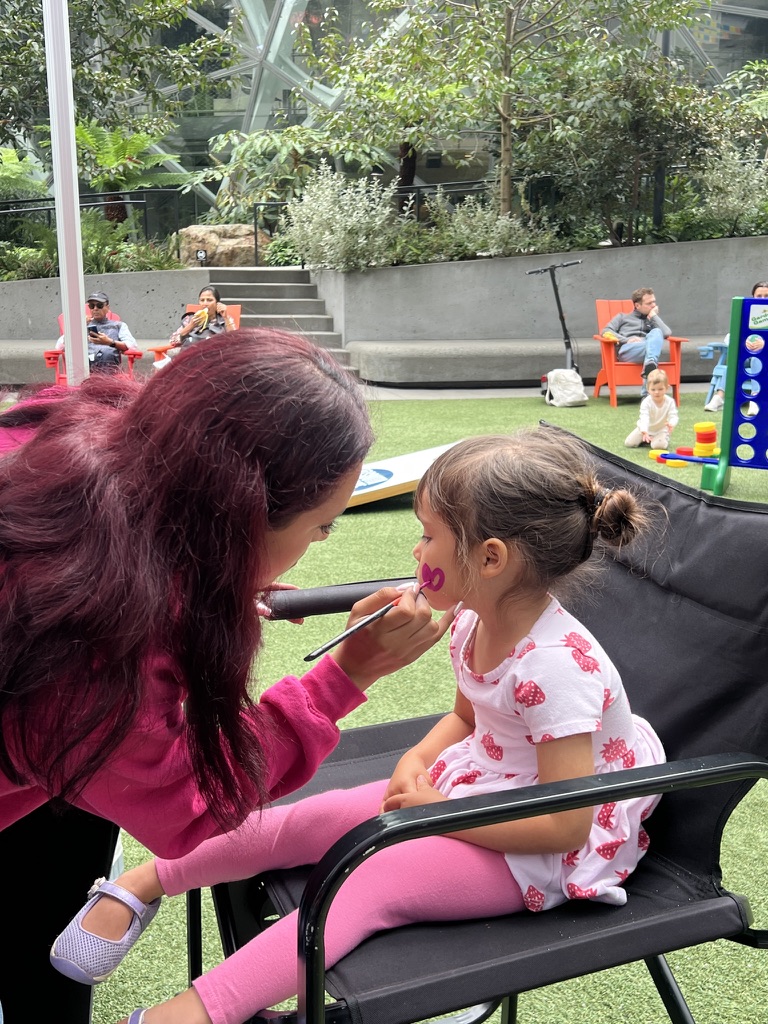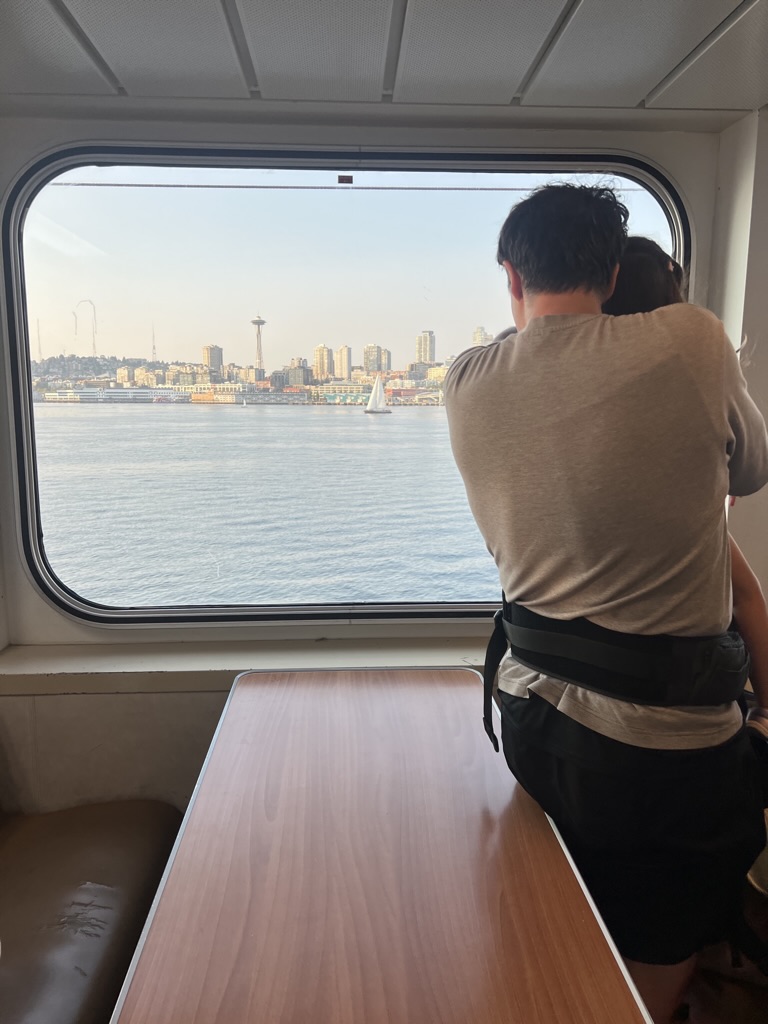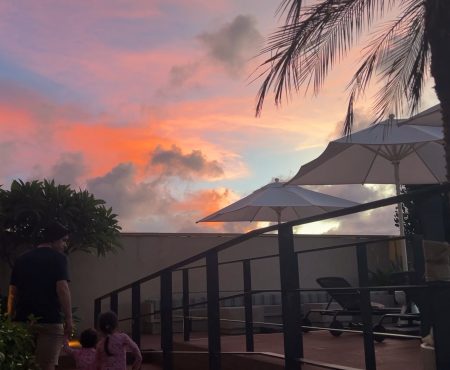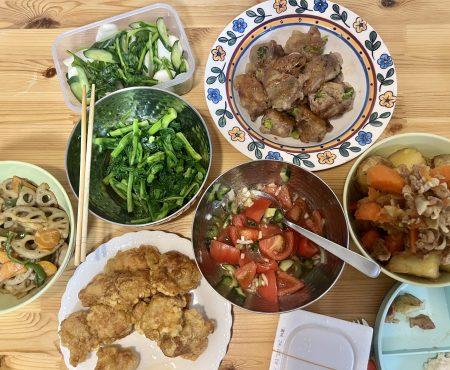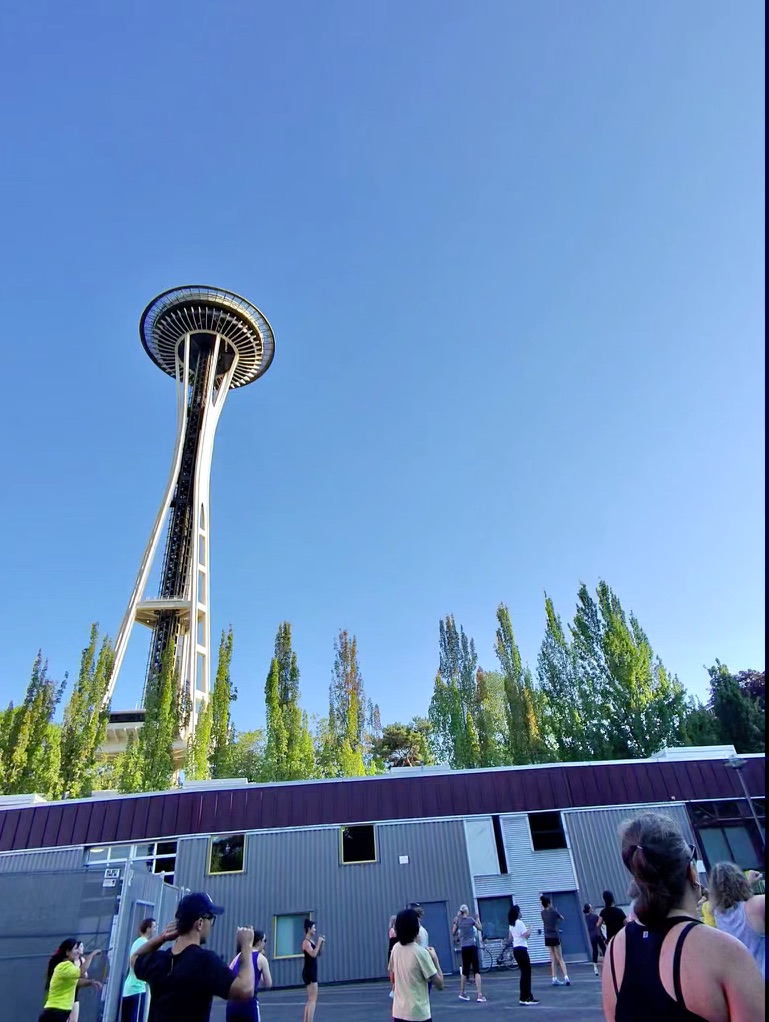
English Below
今年夏のアメリカ生活もすでに2ヶ月が終わろうとしてる。あと1ヶ月で帰国予定なので、本当にあっという間だった。
2ヶ月目、8月の間に大きく変わったことは、「長女がほぼ英語しか話さなくなった」ことだ。
この話は、うちの娘バイリンガルですごいでしょ、とかそういう自慢ではなくて、海外に住むとこんな教育の悩みが出てくるんだな、という発見について語っています。
英語を学ぶという意味のバイリンガル教育が盛り上げる日本ですが、それとは別の意味の現地の言葉+日本語、というバイリンガル教育は、また違う悩みがある。
___
長女は週2−3日義父母の家に長女だけお泊まりさせてもらっていて、本人はそれが楽しみで仕方ない。
義父母家に日本語話者は勿論いないので、
シアトルのダウンタウンに帰宅してからも、本人はほぼ英語でノンストップで話し続けている。
普段東京で生活するときは外では日本語、家庭内で英語で話してることが多いので、そこにグランマグランパが加わって、英語が強くなった。
で、シアトルに長く在住・結婚している友達親子が8月半ばにうちに来たときに、「わーめちゃ英語優先だね!」と驚かれた。
こちらの日本人親子、特に日本語保育園や幼稚園に行ってる子は、ほとんどの子が日本語メインで生活しているようで
なんで東京で生活してる我らがなぜ?と驚かれる。
確かに、私にも娘に英語で話しかけられるので、こちらも無意識に英語で返していることにやっとその時気づいた。
ちょうどそれくらいから、いろんな現地在住の他の日本人ママでもっと年上の子を持つ友人と会ったりして
「現地校と土日の日本語補習校」について聞いた。
____
小学生で現地校に行くと、本当に平日お友達と英語しか話さなくなるので、日本語をどんどん忘れる。
なので日本語を学びたいなら平日の学校とは別で補修校に行く必要が出てくる。
漢字の読み書きなど、1週間分を土曜日に一日中詰め込んで勉強するのだ。
ただ日本語学校には2種類あって、
文科省が管理している補修校と、もっと習い事的に緩く学ぶ補修校があるらしい。
文科省の方は、いまだに電子辞書さえ禁止だそうだ。。。古墳時代かな。。。。
アメリカの学校はすでに宿題が多いことが定番なので、
土曜にさらに丸一日缶詰で勉強、さらに日本語の方の宿題も多いとなると、結構子供に負担は多いなあと思ってしまう。
私が外資で働いてきて、アメリカで育ったけれど日本語は敬語も読み書きも完璧、という友人たちは
皆補修校に通っていたので、やはり文化的にも大事なのだろう。
ただ小学生にとっても、日々必要としない日本語を無理やり覚えさせられるように感じるときつくて、
結構通うのを途中でやめる子も多いらしい。
スポーツチームなどに入ってると、土曜無理だしね。
日本語はマイナー言語だし、世界最高難度の言語の一つだから、別にアニメ好きとかカルチャーが好きとかじゃなかったら、子供にとっては毎日友達との会話に必要なわけじゃないし、土曜に大変な思いをして宿題抱えて行きたくない、と思う気持ちも充分理解できる。
今後アメリカに本格的に長く住む場合、我らもこの補修校に通うかどうかを検討するが、
これはきっと本人が将来どれだけ日本語を使うか(仕事なのか、家族との会話なのか、漫画を読むとかそれくらいなのか)にもよる。
勿論親としては、自分と同じくらいできてほしいと思ってしまうが、
それにはかなり、親も子供も努力や犠牲にするものも多いのだと学んだ。
ーーー
私たちは一旦日本に帰国するが、いつ本格的にアメリカに長期的に住むか決めていないので、タイミングを考えてる。
小学校がいいのか、いやでも日本の小学校の方が学びの種類が豊富だし、丁寧だし、給食もいいしな。
でも自由で、発言を自分でガンガンしていくアメリカの学校の良さもある。雑だけど、無駄に変な事に気を遣わなくても良いアメリカは、なんていうか楽なのだ。
他の国にマレーシア教育移住した友人もいて、今年か来年に訪ねる予定だ。
今日会った元同僚のアメリカ人友人は、「せっかく日本に住めるんだから日本がいいよー!」というし
アメリカを選んで引っ越してきた日本人ママたちは「絶対こっちの方がいいー自由だし、へんな規則ないし」というし。
私の心は揺れている。
まあまだあと何年かあるので、今後もゆるく、でも真面目に考えて行きたいなと思います。
どこに住むかは、教育が全て、でもないしね。我ら親のやりたいことや生きたい価値にあっている場所の方が、生き生きすると思っています。
ちなみに、この話を夫に話すと、英語は完璧にできないと経済的に弱くなるからまずできた方がいい、という合理的な彼らしい言葉が出てきましたが(米国経済に対してやっぱ強気だな、と思ってしまったがまあその通り)
言語の問題は経済的だけじゃ割り切れない、もっと繊細なエモーショナルな部分に関連する、
つらつらと長くなったのですが、私にとっては子供を持つずっと前の大学生の頃から興味のあったテーマの一つであり、そういえばLAの日本人学校にお邪魔したこともあります。
このテーマに興味がある人は、このアベマの動画がわかりやすいです。
(この中のママが言うように、お寺とか神社とか、文化的なものも実際見ていないと、漢字の理解もしづらい、とか、ほんとだね!と思った)
このトピック、興味のある方お話ししましょ!
Our two months in the US are almost over. With only a month left until we return home, time has flown by.
The biggest change I’ve noticed in the past two months, especially in August, is that my eldest daughter has almost completely switched to speaking English. This isn’t a boast about my daughter being bilingual, but rather a reflection on the unexpected challenges of raising a child in a foreign country. While bilingual education is often seen as a single concept, the experience of teaching Japanese to children living abroad is vastly different from teaching English to children in a native English-speaking country. I was already aware of the challenges involved, but my understanding has deepened significantly.
Since August, my daughter has been spending two to three days a week at my in-laws’ house, and she absolutely loves it. She gets to play with her cousins, too. Of course, no one speaks Japanese at my in-laws’ place, so when she comes home, she continues speaking almost exclusively in English.
I realized just how English-centric our home had become when a friend of ours from Seattle, who has been living there for years, visited us. She was surprised and commented, “Wow, she’s really prioritizing English!” Most Japanese children attending Japanese preschools or kindergartens in the US primarily use Japanese in their daily lives, so my friend wondered why our daughter, living in Tokyo, was so different. I realized that I had been unconsciously responding to my daughter’s English, so I’ve made a conscious effort to reply in Japanese even when she speaks to me in English.
Around the same time, I started meeting other Japanese mothers with older children and learned about the challenges of balancing local schools with weekend Japanese supplementary schools. Once kids start attending local schools, they primarily speak English with their friends during the week and gradually forget Japanese. To maintain their Japanese language skills, they need to attend supplementary schools on weekends. These schools cram a week’s worth of Japanese learning, including kanji reading and writing, into a single day.
There are two main types of Japanese schools: those affiliated with the Ministry of Education, Culture, Sports, Science and Technology (MEXT), and more casual ones that are like extracurricular activities. The MEXT-affiliated schools are still quite traditional, with some even prohibiting the use of electronic dictionaries.
Since American schools already have a lot of homework, adding a full day of Japanese study on Saturdays, along with additional Japanese homework, can be quite a burden on children.
I have friends who grew up in the US but have perfect command of Japanese, including formal language and writing. They all attended Japanese supplementary schools, which suggests that learning Japanese is culturally important.
However, for elementary school students, being forced to learn a language they don’t use daily can be difficult, and many children end up quitting. It’s especially challenging for kids involved in sports teams, as Saturdays are often occupied with practices and games. Japanese is a minority language, so unless you’re a big fan of anime or Japanese culture, you don’t need it for daily conversations with friends. It’s understandable why kids might not want to spend their Saturdays doing difficult homework.
If we decide to live in the US long-term in the future, we’ll have to consider whether or not to send our daughter to a Japanese supplementary school. It will depend on how much she’ll need to use Japanese in the future, whether it’s for work, family conversations, or simply enjoying manga. As parents, we naturally want her to be as proficient as we are, but we’ve learned that it requires a lot of effort and sacrifice from both parents and children, and many local parents have given up on reaching that level.
We’ll be returning to Japan for now, but we haven’t decided when or if we’ll move back to the US long-term. Should we send her to kindergarten or elementary school? Japanese elementary schools offer a wide range of subjects and are more structured, but American schools are more flexible and encourage independent thinking. American schools might be more laid-back, but they’re also more freedom. I’ve actually visited a couple of schools. I also have a friend who moved to Malaysia with her family for educational reasons. I plan to visit her this year or next.
An American friend I met today said, “Since you can live in Japan, you should take advantage of it.” On the other hand, Japanese mothers who have chosen to live in the US say, “It’s definitely better here. It’s more free and there are fewer rules.” I’m torn. What’s the best choice? Where we live isn’t just about education. It’s also important for parents to live in a place where they can thrive and pursue their goals. I want to continue thinking about this carefully, even if it’s at a leisurely pace.
Incidentally, when I talked to my husband about language, he took a very practical approach, saying that being fluent in English is essential for economic success. While I agree with him to some extent, I believe that language is more than just an economic tool. It’s also about connecting with family, shaping one’s identity, and experiencing the world on a deeper level.
This has turned into a long post, but if you’re interested in learning more, I recommend watching this Abema video. It explains how understanding kanji is difficult without experiencing Japanese culture firsthand, such as visiting temples and shrines.
I’d love to hear your thoughts on this topic!
八月の思い出を少しばかり。
